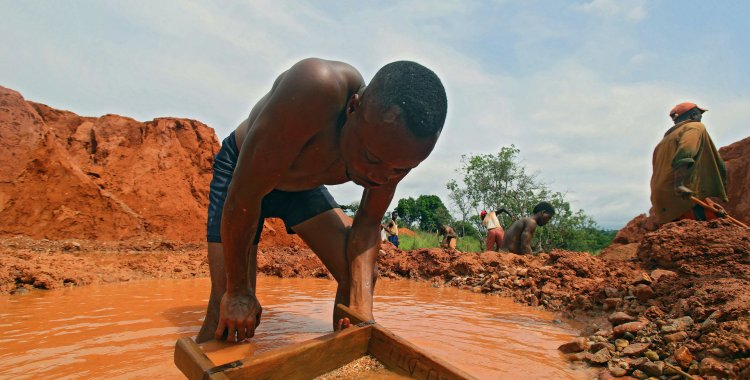Muatchissengue Wa Tembo participated this Wednesday in a conference called "Natural Resources, a Blessing for All", promoted by Tchota, a platform that includes several Angolan civil society organizations linked to the defense of citizens' rights.
"The balance of natural resource exploration activities in the region is very negative, because we even say that it is a curse, natural resources are not a blessing, because they do not benefit our populations. And, if we look at the places where there is exploitation, there is more poverty index than development. We only benefit from the holes, the ravines, the forest devastation, the polluted environment," said the sovereign, speaking to the press on the margins of the conference.
The king gave an example of the recent incident that occurred with Sociedade Mineira de Catoca, located in the province of Lunda Sul, due to a breakdown in the drainage system of the mine's tailings basin, which caused a spill of pollutants.
"They have been following the pollution of the Chicapa River for some time now, there are six rivers in the region, and the people are the ones who suffer. We saw the distribution of the basic food basket, but that was only for two days, the population suffered, until today it continues to suffer, because for recover that amount of fish that ended up dying in the rivers, the fields that were spoiled, it's not today," he lamented.
Muatchissengue Wa Tembo highlighted the need for the Government to do more for the population, recognizing that now the authorities are beginning to "more or less" listen to the demands of the people.
"Yesterday I participated in the Business and Human Rights Forum, organized by the Ministry of Justice and Human Rights and the Norwegian embassy. The director-general of Sociedade Mineira de Catoca himself acknowledged that when he makes that journey from Catoca to the city of Saurimo, he is very sad, with great pity," he said.
"We hope that things get better because in the past there were never these meetings. The government officials did not appear, the companies also refuted, but now civil society, traditional authorities, the Government and mining companies are already able to sit down to listen to those who are the main problems of the populations", he stressed.
The king stressed that conflicts between the local population and companies over the exploitation of natural resources persist, many of which ended in deaths.
"Deaths always exist, despite the fact that the exploitation [of diamonds] by citizens is illegal, the living conditions in which our populations live, unemployment, leads many people to do this illegal exploitation and then they end up colliding with security Minas Gerais, who cannot control the situation, and there are always deaths. That hasn't stopped, it's still going on," he said.
Muatchissengue Wa Atembo points out that the way forward for reversing this situation is listening to the population before granting exploration licenses.
"We often have historical places, everyone knows that the Tchokwe culture is very rich, they often displace people from places that have a very historical, very strong situation, and end up undoing the history of a people. I'm talking about the case of cemeteries, in some places, there is no sounding", he stressed.
Although, in practice, there are still no results from the exploitation of natural resources that benefit the population, the king stresses that "some promises are already being fulfilled", giving as an example the professional training school and the diamond development center opened in August in Saurimo (capital of Lunda Sul).
According to the king, the situation is starting to improve in urban areas, but in rural areas "practically nothing is done". He highlighted, however, the redevelopment of three neighborhoods by the Sociedade Mineira de Catoca.
The Tchota platform is integrated by Action for Rural Development and Environment (ADRA), Institute for Citizenship - MOSAIKO, Mwana Pwo, Associação Mãos Livres, Community Association for the Development of Angola, Center for African Studies of the Catholic University of Angola, Council of Christian Churches of Angola (CICA), AJUDECA, Forum of Women Journalists for Gender Equality, AJPD.







